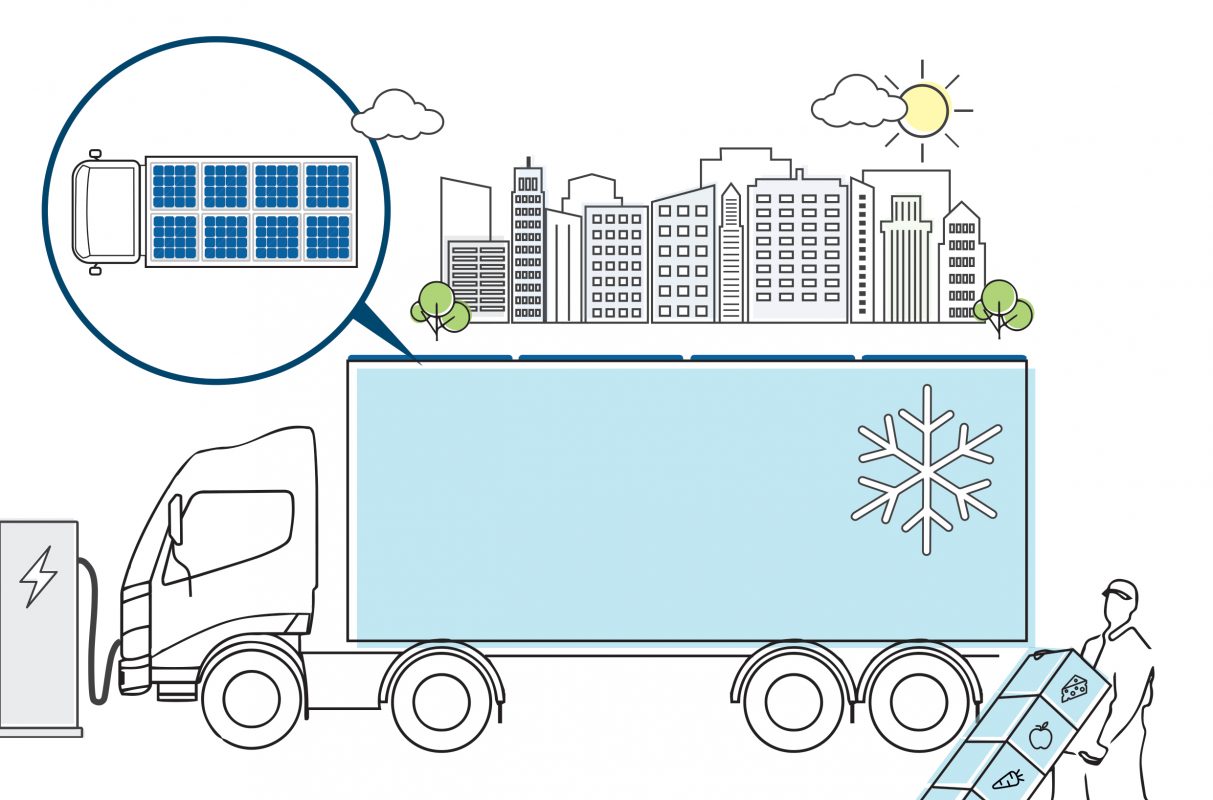
- Categories:
- News
- /
- Announcement
Webinar to assess solutions for refrigerated transport emissions
A webinar offering an insight into refrigerated transport will reveal the requirement, and solutions, for more sustainable technologies that reduce emissions.
Diesel auxiliary engines used to power Transport Refrigeration Units (TRU) emit at least 16 times more nitrogen oxides (NOx) and 40 times more particulate matter (PM) per kWh of energy than truck’s main engine, and can produce up to 15 tonnes of tailpipe CO2 each year, equivalent to 9 average UK cars in a year.
“This webinar with Sunswap will give key insights into refrigerated transport operations, duty cycles, energy demand and clean alternatives, and inform fleet operators, policy makers and environmental managers of the steps they can take to reduce emissions,” said Victor Lejona, co-author of the TRU white paper and Technical Specialist at Cenex.
The agenda will cover:
- Welcome and introduction of presenters
- Introduction to refrigerated transport: emissions, technologies, best practice
- Sunswap system development and electrical architecture
- Project ZERO: Techno-economic & life cycle assessment (LCA) modelling
- Questions/discussion
- Concluding remarks
Register your place: Refrigerated Transport Insights Webinar Monday 28th June, 11am
An example of electrical architecture to reduce emissions is being developed by Sunswap and Cenex – in the Innovate UK funded project ZERO: Zero Emission Refrigerated Operations – that will replace the diesel TRU with a solar and battery powered system.
At the core of the product is the patent-pending battery technology enabling the TRU to meet a wide range of customer requirements, with the trailer roof covered with solar panels to provide extra on-board energy.
As well as reducing emissions, an electrified system will also reduce operating costs, as the removal of the red diesel subsidy in April 2022 is expected to increase the fuel cost of TRU units by 60-70%.
Get in touch to see how you can lower your emissions.